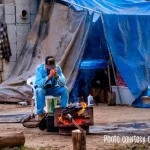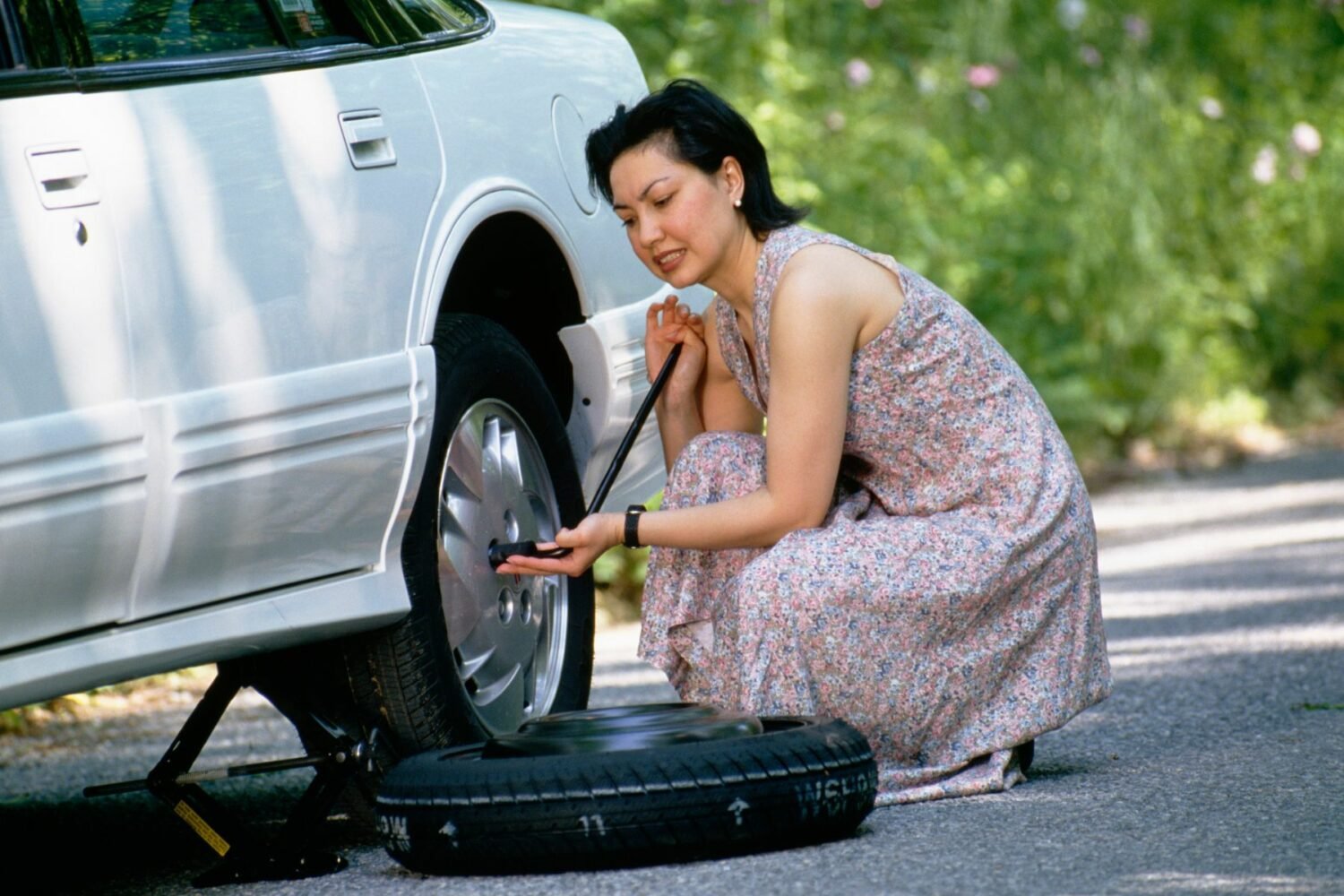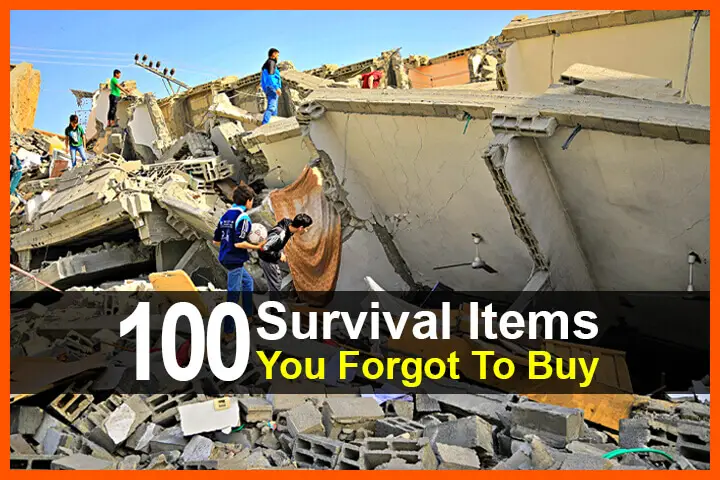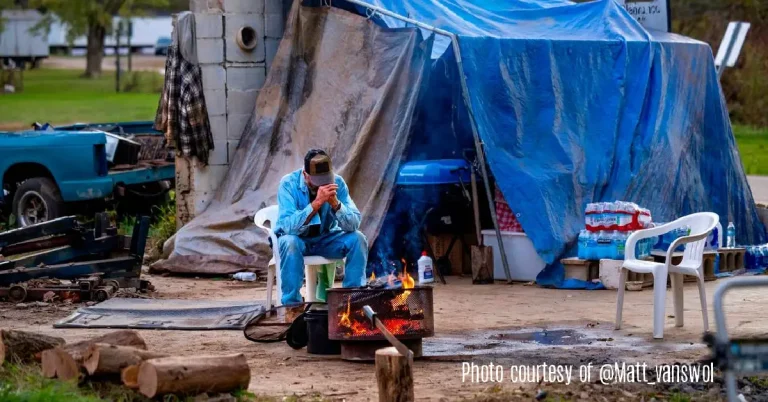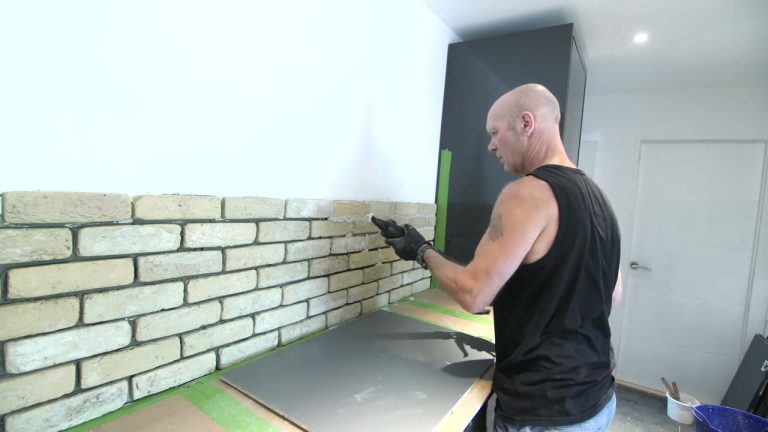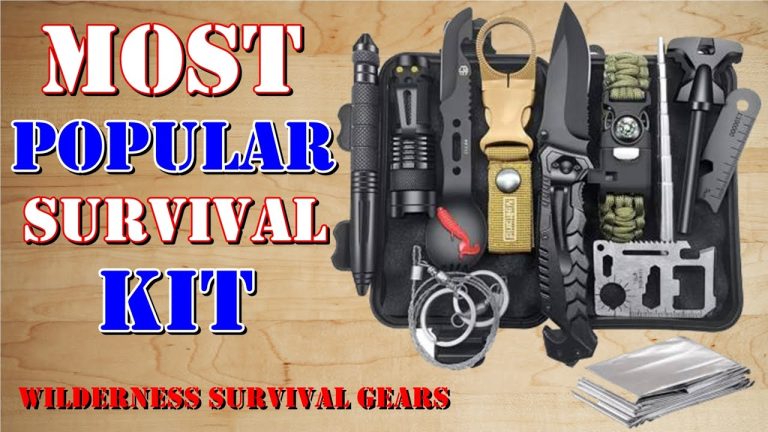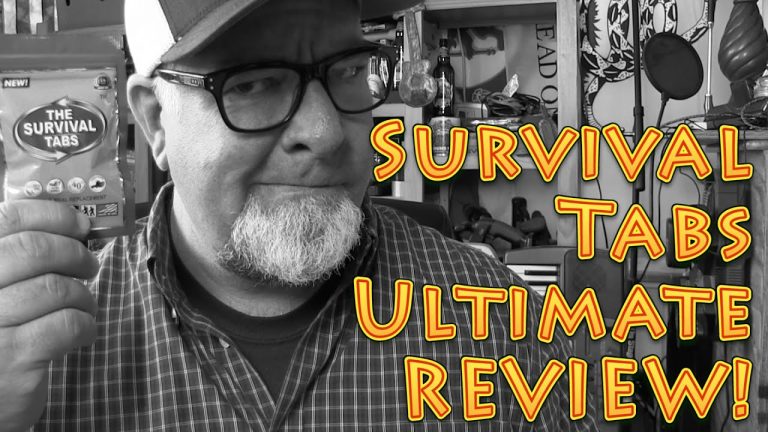Some of the links in this post may contain affiliate links for your convenience. As an Amazon associate I earn from qualifying purchases.
Soccer moms, football moms, cheerleading moms, whatever they call us, “chauffeur” better describes what we, Survival Moms, do every day. In my world, it’s not unusual to have a kid’s dentist appointment, a field trip, and a swim meet all on the same day, transported by our trusty Tahoe. Now, if that Tahoe ever broke down or for some reason we couldn’t get home as planned, what would we do? My answer is the Vehicle Emergency Kit.
If you were well and truly stuck somewhere, this Kit could see you and your family through at least 72 hours. That’s three days. It wouldn’t be luxurious living, that’s for sure, but it would be survival, and that’s what we’re talking about here.
I consider the Vehicle Emergency Kit an essential part of being prepared for emergencies, and fortunately, it’s pretty easy to put together. In fact, you might have all the necessary, basic supplies in your home and garage right now.
What container do I put the kit in?
To get started on your own emergency kit for your car, you’ll need some type of container that will fit in the back of your minivan, SUV, or in the trunk of your car. I chose a Rubbermaid clear plastic bin, the type that is designed to fit under beds. It’s the perfect width for our vehicle, and I like the fact that I can see what’s inside. It also holds a lot.
The typical 72 Hour Kit is stored at home and ready to grab as you run out the door in case of an evacuation. Since we’re building a Kit for the vehicle, we want it filled with items we’ll need if stranded somewhere.
You can find numerous lists online of what should be in a 72 Hour Kit, but since I’m a mom, and I pretty much always have the kids with me, my own list is a little different. A lot of these items are available online, and I’ve included links. Anything to make shopping easier, right?
Here’s what I’ve packed.
What should be in a car emergency kit?
Sanitation
(With kids, you just have to start here.)
Sustenance
(Kids will quickly panic if they think you’re out of food, but whatever you pack, make sure it’s something your kids will eat.)
- Beef jerky or something similar
- Trail mix
- Shelled sunflower seeds
- Small cans of food, such as fruit, ravioli, tuna
- Protein bars and granola bars
- High calorie energy bars. This article compares several different brands of energy bars. (Handle these with care. High energy may be the last thing your kids need!)
- Hard candies (Offer a prize for whoever can make their Lifesaver last the longest!) Comfort foods are helpful for mental fortitude.
- Packets for flavoring water
- Can opener, unless all your cans have a pop-top
- Plastic forks, spoons and knives, one set per person. I like this set of sporks from Amazon.
Entertainment
(After everyone has eaten and gone to the bathroom, then what??)
- A read-aloud book (Should be something entertaining for the whole family with plenty of chapters. I packed Journey to the Center of the Earth and Charlotte’s Web.)
- Small Bible (This is more for my own sanity than that of the kids!)
- Paper and pens/pencils
- Deck of cards (Think “War”, “Go Fish” and math flashcards. If you’re stranded for very long, your kids will invent their own games!)
- Single-use digital camera (Not only good for entertainment, but it might come in handy to document your emergency situation.)
- Small binoculars
- Sharpie (Drawing fake mustaches on each other should keep the kids busy for a couple of minutes (make sure it’s a WASHABLE Sharpie!), and you’ll be grateful for this if you have to leave a note on your vehicle.)
- Glo-sticks (Great value: entertainment and emergency light in one!)
- Ibuprofen (For me.)
- Ear plugs (Again, for me.)
Hard-Core Survival
Medical Emergencies
(With kids, need I say more?)
Miscellaneous
- Ziploc-style bags (Just store some of your items in different sized bags so you’ll have them already packed.)
- Rubber bands
- A bungee cord or two
- A cell phone charger, unless you know that you know there’s one elsewhere in the car.
- A charged battery pack for your small electronics
- Comb/hairbrush
- Small scissors
- Sewing kit
- Cloth sheet
- A couple of compact nylon bags and a nylon backpack (If we have to leave our vehicle, we’ll need something for carrying our supplies.)
- Money in small bills, along with plenty of change (If nothing else, this will help greatly with bribing your children to be nice to each other!)
Other places I stored items in the vehicle
In addition to storing things in the plastic bin, I took a long, hard look at the Tahoe to find other nooks and crannies where I could put additional supplies.
- A large city map book, along with maps of neighboring states, is in a back seat pocket.
- There are two Gymboree baby blankets and a couple of beach towels rolled up and stored beneath the back seat.
- Several 2-liter bottles filled with water stashed beneath the back seat. I’m not so sure the water/plastic bottle/heat is a good combination, so when we leave the house, I always make sure we have a handful of fresh water bottles with us. However, if the stored water was all we had, we’d drink it until we could get fresh water. Even if we don’t drink the stored water, it can be used for washing grubby hands and faces.
- It’s recommended to have a gallon of water on hand per person, per day. It would be pretty difficult to keep that much water stored in your vehicle. One option, in addition to the 2-liter bottles, is a 5-gallon collapsible water bottle or two. My family has used the inexpensive Coghlan brand for years and recommend it.
- What about a change of clothing for each person? It depends on how much space you have in your Kit and in your vehicle, but a clean shirt, pants, underwear and socks shouldn’t take up too much space. If you have Space Bags, a Food Saver, or something similar, clothing and items like the fleece blankets can be vacuum sealed and will take up even less room. They may even fit beneath the back seat.
This article contains many more ideas for surviving cold weather if you are ever stranded in your vehicle.
Final Thoughts
You’ll be surprised by how quickly your own Kit comes together once you get started. I was able to finish mine in just a day or two. I actually had most everything on hand already. You may never need this Vehicle Emergency Kit, but I’ll bet it will bring you and your family peace of mind just knowing it’s there.
Frequently Asked Questions
If you have more than one vehicle in the family, make a kit for the one you use most often and then add kits to the other vehicles as you have the time, supplies, and money.
A five or six gallon bucket, equipped with a portable potty lid is a big improvement over squatting by the side of the road. Be sure to include toilet bags. There are even chemicals to have on hand that keep the odors down. Store these accessories in the bucket.
It’s difficult to keep water from getting hot in an enclosed vehicle in high temps. Try storing it in a cooler and rotate regularly. Use reflective sun shades on car windows to reduce interior temperature and when possible, park in the shade.


